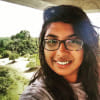LOST in TRANSLATION

The language that we so proudly speak today is soaked in blood, bears the weight of a war, has a history of influence from Europeans, Mughals, Arabs, Persians, and East Asians thus adapting many words from their language. A day is dedicated solely to celebrate this very language.
This language is versatile and laced with romance, it is the language of poets and romantics alike. Many a poem talks about the poet's love for his girl as he traverses harsh seas and oceans, and more talk about his desire to return to this land, near the banks of the once mighty Buriganga, or the meandering Shithakhya.
This sweet language is spoken widely in Bangladesh and West Bengal in India with slight variations resulting in dialects. Throughout Bangladesh and its many divisions you will find Bengali spoken slightly differently. “Chele-Meye” translated means boys and girls is what you hear in Dhaka, Go to Sylhet in the north-east division and it becomes “Fua-Fui!”
This is just the beginning. Bengali has been modelled and designed to suit every region to their comfort and in fact to define them. Even the capital city Dhaka has its own version of Bengali and does not just stick to the “Shuddho Bangla” as we know it!
Puran Dhaka or old Dhaka has a distinct dialect of its own with variations in their pitch and tone. While Dhakaiites have their Bengali to go, Chittagonian or Sylheti Bengali is not far behind in adding a twist of uniqueness to their daily dish of spoken language. Even as close to Dhaka, Comilla, has its own divergence.
Many have been baffled time and again when they walked up to a person asking for directions in these cities! What's more, the subdivisions within the cities have quite a difference with some saying their P's as “PE” others saying it as “FEE” and others not saying it at all!
The fruits and vegetables also change names accordingly, in Sylhet a papaya is koyfol, in Chittagong it is kuiya, and pepe in Dhaka. Or take the example of guava, “peyara” in Dhaka, “shobri” in Rangpur and Sylhet and “gunwasi” in Chittagong.
Even asking someone how they are doing is expressed differently in the different dialects. “Kemon Acho?” I will ask in Dhaka and as I move to the tea-garden laced landscapes of Sylhet I ask “Kita ba? Bala ni?” and as I move towards the coastal city of Chittagong I shall ask “Ken aso?” to know how you are doing.
The language seasoned by the variety of Indo-European culture has never failed to impress. Saying the meaningful word of “Love” with a great resonance as “Bhalobasha” and leaving so many more hearts dwindling on their hinges.
Giving the poets so much more to work with and even making the movies so much more worth watching! There is a reason after all, why so many decades ago people of all walks marched together with one thought moving them, 'Amar Bhasha Amar chai', literally translating to 'I want my own language' and why even after all the cultural infiltration that Bangladesh has been a bed to, we still go out on “Hang-outs” and then talk in Bengali.
This language is after all just so much better when it comes to expression and connection... “Ami ei Banglay amar ami ke chiro din khuje pai” (In Bengali, I find myself forever and after).
By Abida Rahman Chowdhury

 For all latest news, follow The Daily Star's Google News channel.
For all latest news, follow The Daily Star's Google News channel. 



Comments